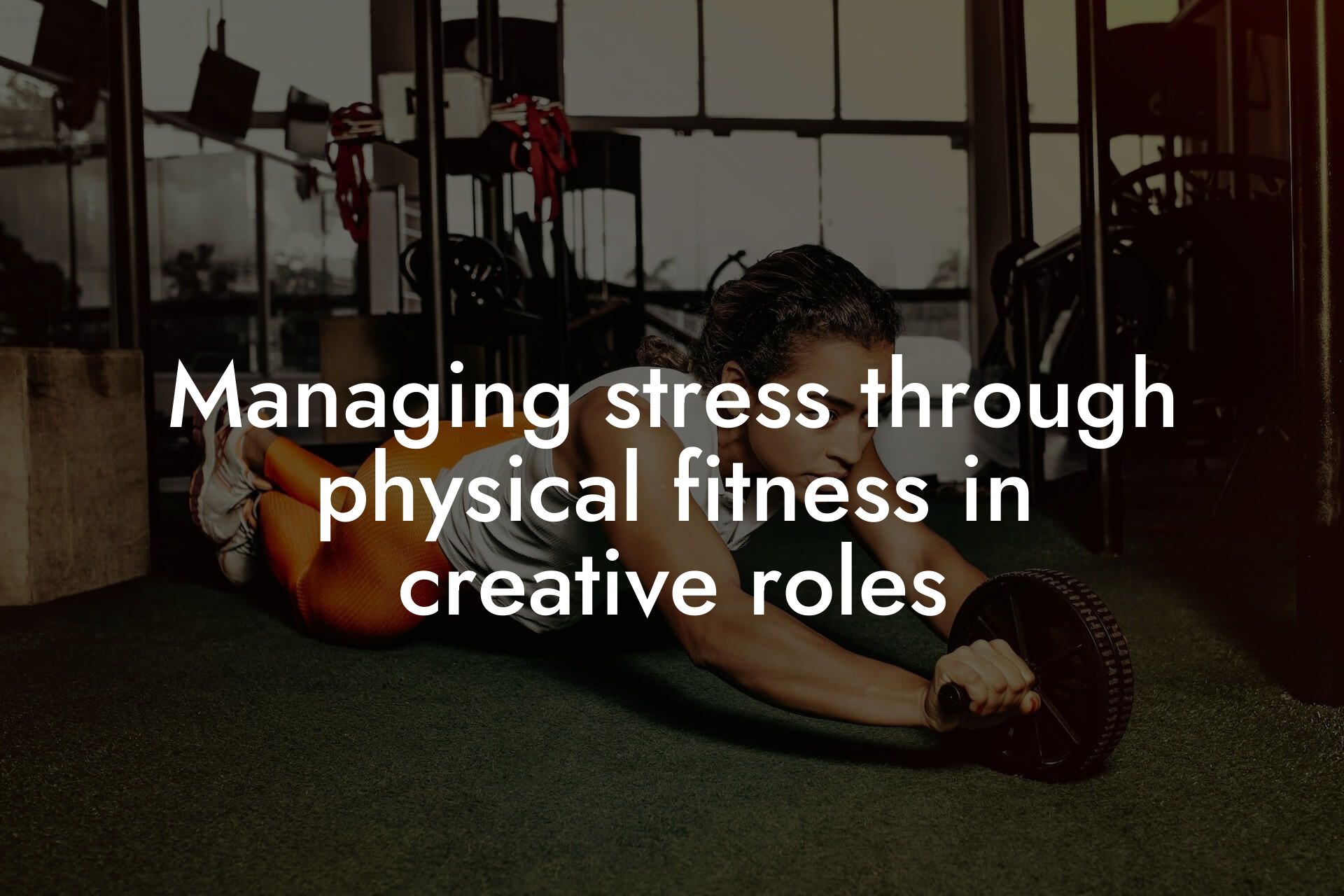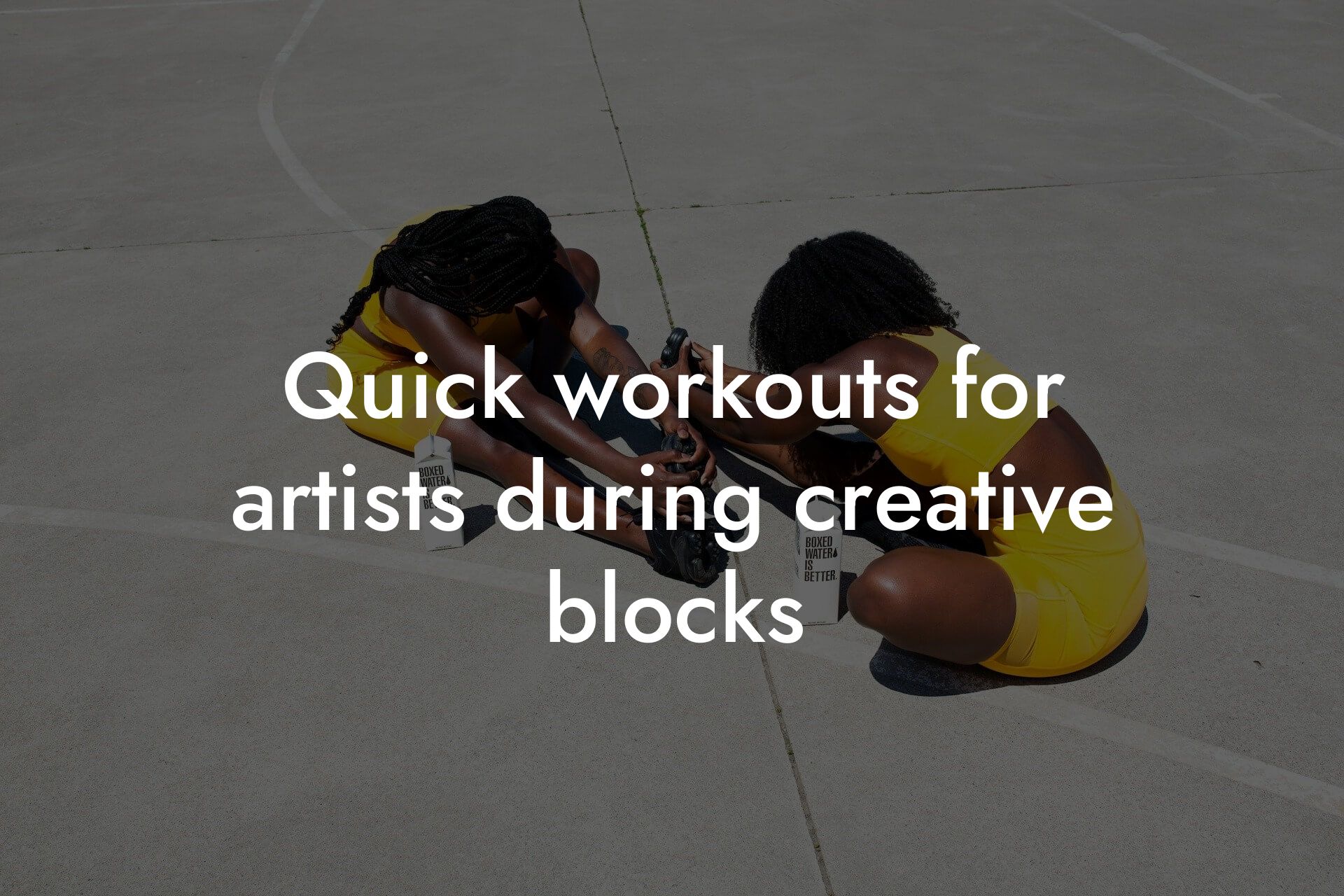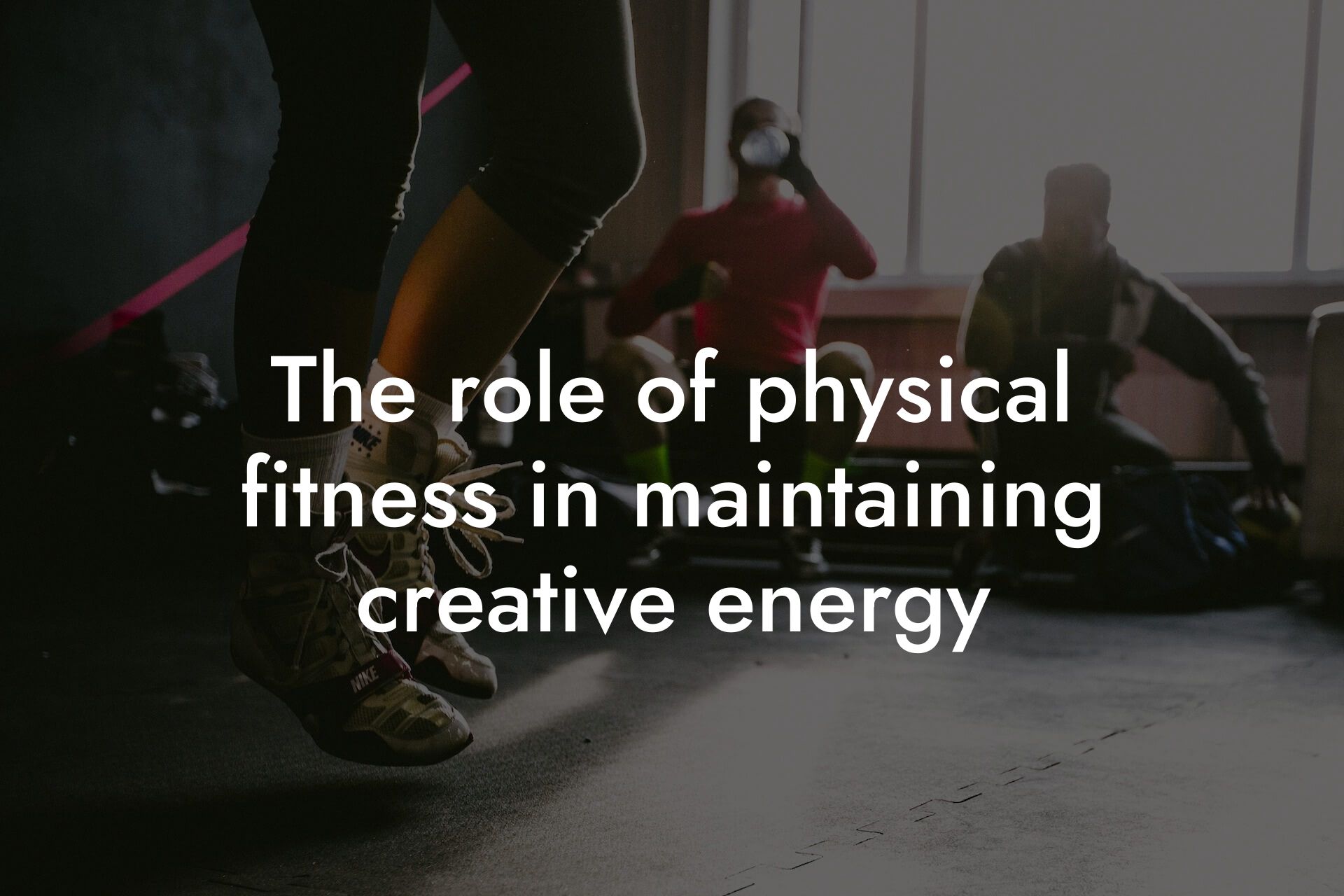As high-earning professionals, you understand the importance of maintaining a healthy physique to perform at your best. But did you know that your physical health also has a significant impact on your creative output? The connection between physical health and creative output is a complex one, and in this article, we'll delve into the ways in which your body's well-being affects your mind's ability to create.
Table of Contents
- The Science Behind Creativity and Physical Health
- The Impact of Body Fat on Creativity
- The Role of Bone Density in Creative Performance
- The Importance of Sleep in Creative Output
- The Connection Between Nutrition and Creativity
- How DEXA Scans Can Help Improve Creative Output
- Practical Tips for Improving Creative Output Through Physical Health
- Frequently Asked Questions
The Science Behind Creativity and Physical Health
Research has shown that physical activity and exercise have a profound impact on cognitive function, including creativity. When you engage in regular physical activity, your brain produces a protein called brain-derived neurotrophic factor (BDNF), which plays a crucial role in the growth and development of new neurons. This, in turn, enhances your ability to think creatively and make new connections between ideas.
Furthermore, exercise has been shown to increase the production of dopamine, a neurotransmitter that plays a key role in motivation, pleasure, and reward processing. When you're physically active, you're more likely to feel motivated and inspired, which can lead to increased creative output.
The Impact of Body Fat on Creativity
Excess body fat, particularly around the midsection, has been linked to decreased cognitive function and a higher risk of dementia. This is because visceral fat, the type of fat that accumulates around the organs, produces pro-inflammatory cytokines, which can disrupt the normal functioning of the brain.
When you have excess body fat, you're more likely to experience fatigue, brain fog, and decreased motivation, all of which can negatively impact your creative output. On the other hand, maintaining a healthy body fat percentage can help improve your focus, concentration, and overall mental clarity.
The Role of Bone Density in Creative Performance
Bone density is often overlooked as a factor in creative performance, but it plays a crucial role in maintaining optimal brain function. When your bones are dense and healthy, your brain is better able to function at its best, leading to increased creativity and productivity.
Osteoporosis, a condition characterized by low bone density, has been linked to decreased cognitive function and a higher risk of dementia. This is because the bones play a crucial role in regulating the body's inflammatory response, which can impact brain function.
The Importance of Sleep in Creative Output
Sleep is essential for physical recovery, but it's also crucial for creative performance. During sleep, your brain processes and consolidates information, making new connections and forming new ideas. When you don't get enough sleep, you're more likely to feel fatigued, demotivated, and uninspired.
Research has shown that sleep deprivation can lead to decreased creativity, reduced problem-solving skills, and a lower ability to think outside the box. On the other hand, getting adequate sleep can help improve your creative output, increase your motivation, and enhance your overall well-being.
The Connection Between Nutrition and Creativity
Nutrition plays a critical role in maintaining optimal brain function, and therefore, creative output. A diet rich in fruits, vegetables, whole grains, and lean protein can help support brain health, while a diet high in processed foods, sugar, and unhealthy fats can lead to decreased cognitive function.
Specific nutrients, such as omega-3 fatty acids, vitamin D, and antioxidants, have been shown to have a positive impact on cognitive function and creative performance. On the other hand, deficiencies in these nutrients can lead to decreased motivation, fatigue, and decreased creative output.
How DEXA Scans Can Help Improve Creative Output
At Tano Performance Group, we understand the importance of maintaining optimal physical health to achieve peak creative performance. That's why we offer DEXA scans, a comprehensive body assessment that provides valuable insights into your body composition, bone density, and overall health.
By using a DEXA scan, you can gain a better understanding of your body's strengths and weaknesses, and make targeted changes to improve your physical health. This, in turn, can lead to increased creative output, improved motivation, and enhanced overall well-being.
Practical Tips for Improving Creative Output Through Physical Health
So, what can you do to improve your creative output through physical health? Here are some practical tips:
- Engage in regular physical activity, such as exercise or sports, to boost your mood and increase creativity.
- Maintain a healthy body fat percentage through a balanced diet and regular exercise.
- Prioritize sleep and aim for 7-9 hours per night to help consolidate information and form new ideas.
- Fuel your brain with a nutrient-rich diet that includes plenty of fruits, vegetables, whole grains, and lean protein.
- Stay hydrated by drinking plenty of water throughout the day.
- Consider incorporating stress-reducing activities, such as meditation or yoga, into your daily routine.
- Get regular DEXA scans to track your progress and make targeted changes to improve your physical health.
By prioritizing your physical health, you can unlock your full creative potential and achieve peak performance in your personal and professional life. Remember, a healthy body is a creative mind, and by taking care of your physical health, you can unlock a world of possibilities.
Frequently Asked Questions
What is the connection between physical health and creative output?
The connection between physical health and creative output is a complex one, but research has shown that there is a strong correlation between the two. When we take care of our physical health, our bodies and minds are better equipped to perform at their best, leading to increased creativity, productivity, and overall well-being.
How does exercise impact creative thinking?
Exercise has been shown to improve cognitive function, including creative thinking. Physical activity increases blood flow to the brain, boosting the production of neurotransmitters that stimulate creativity and problem-solving skills. Regular exercise has also been linked to increased grey matter in the brain, which is responsible for creative thinking and innovation.
What role does nutrition play in creative output?
Nutrition plays a critical role in creative output. A diet rich in fruits, vegetables, whole grains, and lean proteins provides the brain with the necessary fuel to function at its best. A well-nourished brain is better equipped to think creatively, make connections, and solve problems. Conversely, a diet high in processed foods and added sugars can lead to decreased cognitive function and reduced creativity.
How does sleep affect creative thinking?
Sleep is essential for creative thinking. During sleep, the brain processes and consolidates information, making connections and forming new ideas. Lack of sleep can lead to decreased cognitive function, reduced creativity, and impaired problem-solving skills. Aim for 7-9 hours of sleep per night to support optimal creative thinking.
What is the impact of stress on creative output?
Chronic stress can have a significant impact on creative output. When we're stressed, our brains are in "fight or flight" mode, making it difficult to think creatively and focus on complex tasks. Chronic stress can also lead to decreased motivation, reduced productivity, and increased anxiety, all of which can stifle creative thinking.
How can I improve my physical health to boost creative output?
Improving your physical health requires a holistic approach. Start by incorporating regular exercise into your routine, such as cardio, strength training, and flexibility exercises. Eat a balanced diet rich in whole foods, fruits, and vegetables. Get enough sleep each night, and prioritize stress-reducing activities, such as meditation or yoga.
What are some simple exercises to improve creative thinking?
Simple exercises like brainstorming, free writing, and mind mapping can help improve creative thinking. Try setting a timer for 10 minutes and writing down as many ideas as possible. You can also try drawing or sketching to stimulate your creative juices.
How can I incorporate physical activity into my busy schedule?
Incorporating physical activity into your busy schedule can be challenging, but there are ways to make it work. Try breaking up your exercise routine into shorter sessions throughout the day, such as taking a 10-minute walk during your lunch break or doing a few jumping jacks during commercial breaks while watching TV.
What are some healthy snacks to fuel my creativity?
Healthy snacks like nuts, seeds, fruits, and vegetables are great for fueling your creativity. Try keeping a bowl of fruit on your desk or snacking on trail mix made with nuts and dried fruit. Avoid sugary or processed snacks that can lead to energy crashes and decreased productivity.
How does physical health impact mental health?
Physical health has a significant impact on mental health. Regular exercise, healthy eating, and adequate sleep can reduce symptoms of anxiety and depression, improve mood, and increase overall well-being. Conversely, poor physical health can exacerbate mental health issues, making it more challenging to think creatively and be productive.
What are some common physical health issues that can impact creative output?
Common physical health issues that can impact creative output include chronic fatigue, joint pain, and digestive issues. These issues can lead to decreased motivation, reduced productivity, and impaired cognitive function, making it more challenging to think creatively and be productive.
How can I prioritize self-care to support creative thinking?
Prioritizing self-care is essential for supporting creative thinking. Make time for activities that bring you joy and relaxation, such as reading, taking a bath, or practicing yoga. Set boundaries and learn to say no to tasks that drain your energy and say yes to those that nourish your mind, body, and soul.
What is the connection between physical health and mental clarity?
Physical health has a direct impact on mental clarity. When we take care of our physical health, our minds are clearer, more focused, and better equipped to think creatively and make connections. Regular exercise, healthy eating, and adequate sleep can improve cognitive function, leading to increased mental clarity and improved creative thinking.
How can I use mindfulness to improve creative thinking?
Mindfulness can be a powerful tool for improving creative thinking. Try incorporating mindfulness exercises into your daily routine, such as meditation or deep breathing. This can help you stay present, focused, and open to new ideas and inspiration.
What are some common creative blocks and how can physical health help overcome them?
Common creative blocks include writer's block, artist's block, and designer's block. Physical health can help overcome these blocks by improving cognitive function, increasing motivation, and reducing stress and anxiety. Regular exercise, healthy eating, and adequate sleep can also increase feelings of inspiration and creativity.
How can I incorporate physical activity into my creative routine?
Incorporating physical activity into your creative routine can be as simple as taking a walk while brainstorming or doing a few jumping jacks during breaks. You can also try incorporating exercise into your warm-up or cool-down routine, such as doing some stretching or yoga poses before starting your creative work.
What are some physical health benefits of creative activities?
Creative activities have numerous physical health benefits, including reduced stress and anxiety, improved mood, and increased cognitive function. Engaging in creative activities can also improve fine motor skills, hand-eye coordination, and overall dexterity.
How can I use physical health to overcome creative anxiety?
Physical health can be a powerful tool for overcoming creative anxiety. Regular exercise, healthy eating, and adequate sleep can reduce symptoms of anxiety and improve mood. Try incorporating physical activity into your creative routine, such as taking a walk while brainstorming or doing some stretching exercises before starting your creative work.
What are some common physical health myths that can impact creative output?
Common physical health myths that can impact creative output include the idea that you need to be in perfect physical shape to be creative or that you need to sacrifice your physical health to produce great work. These myths can lead to burnout, decreased motivation, and impaired cognitive function, making it more challenging to think creatively and be productive.
How can I prioritize physical health as a busy creative professional?
Prioritizing physical health as a busy creative professional requires intention and commitment. Start by scheduling physical activity into your daily routine, such as taking a walk during your lunch break or doing a few jumping jacks during commercial breaks while watching TV. Make healthy eating a priority by meal prepping or keeping healthy snacks on hand.
What are some physical health habits that can improve creative thinking?
Physical health habits that can improve creative thinking include regular exercise, healthy eating, and adequate sleep. Try incorporating activities that stimulate your creative juices, such as drawing, painting, or playing music. Prioritize self-care and make time for activities that bring you joy and relaxation.
How can I use physical health to improve my overall well-being?
Physical health is closely tied to overall well-being. By prioritizing physical health, you can improve your mood, increase energy levels, and reduce symptoms of anxiety and depression. Regular exercise, healthy eating, and adequate sleep can also improve cognitive function, leading to increased creativity, productivity, and overall well-being.
Here are some related articles you might love...
- Managing stress through physical fitness in creative roles
- Quick workouts for artists during creative blocks
- The role of physical fitness in maintaining creative energy
- Nutrition strategies for fueling creative work
- How artists can stay fit during long studio sessions
- Balancing artistic work with personal fitness goals
- How to maintain bone density in sedentary artistic jobs
- How DEXA scans can benefit creative professionals
- The impact of body composition on creative performance
Zak Faulkner
Zak Faulkner is a leading authority in the realm of physical health and body composition analysis, with over 15 years of experience helping professionals optimise their fitness and well-being. As one the experts behind Tano Performance Group, Zak has dedicated his career to providing in-depth, science-backed insights that empower clients to elevate their physical performance and overall health.
With extensive knowledge of DEXA technology, Zak specializes in delivering comprehensive body assessments that offer precise data on body fat, muscle mass, bone density, and overall physique. His expertise enables individuals to make informed decisions and achieve their fitness goals with accuracy and confidence. Zak’s approach is rooted in a deep understanding of human physiology, combined with a passion for helping clients unlock their full potential through personalised strategies.
Over the years, Zak has earned a reputation for his commitment to excellence, precision, and client-focused service. His guidance is trusted by top professionals who demand the best when it comes to their health. Whether advising on fitness programs, nutritional strategies, or long-term wellness plans, Zak Faulkner’s insights are a valuable resource for anyone serious about taking their health and fitness to the next level.
At Tano Performance Group, Zak continues to lead our Content Team revolutionising how professionals approach their physical health, offering unparalleled expertise that drives real results.




